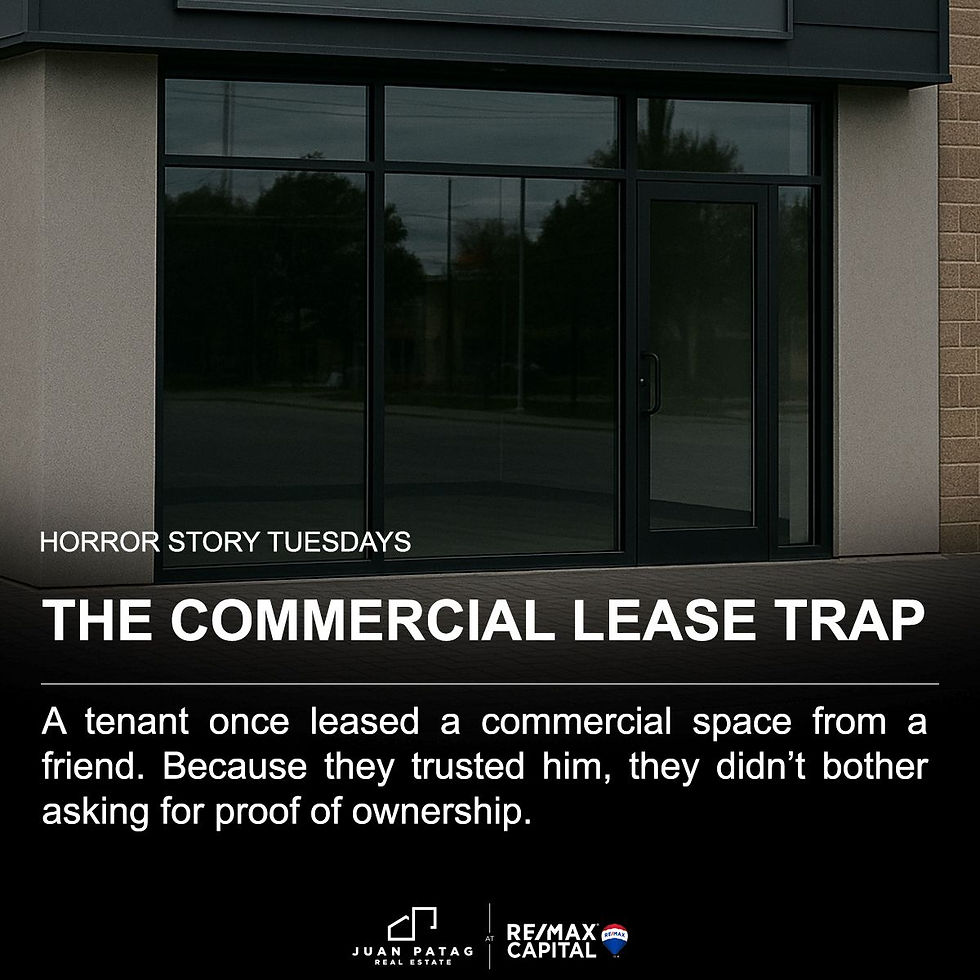THE COMMERCIAL LEASE TRAP
- karen36083
- Sep 9, 2025
- 1 min read

A tenant once leased a commercial space from a friend. Because they trusted him, they didn’t bother asking for proof of ownership. They’d visited the property before, and it felt awkward—almost insulting—to demand documents.
But a few months into the lease, a woman suddenly walked in. She introduced herself as the true owner of the property. Her message was blunt: she had already sold the warehouse, and the tenant’s business had to vacate by March 2023.
That’s when the tenant discovered the truth. Their “friend” wasn’t the owner at all—he was merely another lessee, quietly sub-leasing the space. The tenant’s contract supposedly ran until 2024, but the real owner refused to honor it, since the actual lease with the friend expired in March 2023.
The tenant prepared to move their business out. But on moving day, the friend suddenly intervened. He had armed men block the exit, insisting his lease was still in effect—and even claimed the owner couldn’t sell the property because his contract gave him a “right of first refusal.”
Now the tenant faced a nightmare:
How do you pull out your equipment and inventory when the sub-lessor physically bars you from leaving?
Do you still owe rent when the person you’ve been paying never owned the property in the first place—and the rightful owner now wants it back?
Lesson learned: Whether commercial or residential, the rule is the same—always verify ownership documents before signing or paying. Trust won’t protect you in court. This is also why many tenants insist on having their lease contracts annotated directly on the property title.
_edited_.png)


